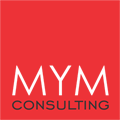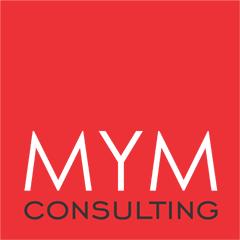We are asked this regularly and there is no clear answer as it is dependent upon experience and the specific role applied for, however there are some easy traps to fall in to and common mistakes that we see.
Getting the job that you really want could come down to how the information on your resume is presented. Does it stand out from the hundreds of applicants that you are competing against? According to Microsoft’s 2015 report, a person’s attention span is now less than that of your average goldfish! Hiring managers and recruiters read hundreds of applications before narrowing their choices down for interview, and that lowers their tolerance to some of the tricks job applicants use to try to get their resume noticed.
Highly Visual Content
Steer clear of bright colors, charts, or graphics unless you are applying for a job in the graphic design industry. Otherwise, keep it subtle and concise with an easy to read format. Be cautious about using colorful or visual content that makes it look distracting instead of appealing. Formatting that is hard to read is another element to steer clear of when building your resume.
Additionally, if you remember that trend of using a picture of yourself on your resume, forget it. That is an outdated idea and will often have the reverse effect of the recipient not taking you seriously.
Personal Details
Your name, phone number, email and your LinkedIn profile link are the basics and the only information hiring managers need to know about you. You should not entertain them with your lifestyle choices, family, hobbies, or details about your interests. Most importantly:
- Never include anything that can be used against you i.e. political or religious leanings and do not mention sports teams you support!
These extraneous details are not likely to influence a hiring manager or potential employer in any positive way. In fact, they are more likely to go against you due to our subconscious bias.
Length of resume
When we query why someone’s resume is only one page in length we are usually told ‘someone told me it had to be’! This is ridiculous, the fact that one page has two sides says it all! The appropriate length of your resume will depend on your current career track. The standard size of a resume is two pages, only if you are very experienced should it be more.
If you happen to be a recent graduate and find yourself struggling to fill a resume and stand out, here is an example:
Are you a member of a society? How do you make that work for you?
Make sure that you list out any contributions or achievements that have resulted from your membership. It should not be seen as a social activity, but an opportunity for high-achievers to get together and contribute to society.
Cover letters & Structure
Cover letters are never read so don’t waste your time unless a job advert implicitly asks for one. Start your resume with a profile describing yourself so that the hiring manager can get an idea of your personality and career goals. Instead of thinking hard to come up with unsubstantial fluff for a cover letter, stick to writing a brief overview of your career, listing only relevant experiences and stating how it has equipped you with the required skills for your ideal role. Use a short list of your skills to highlight your strengths but please don’t worry about listing MS Office, everyone knows how to use that!
Next, list your education. When it comes to your work experience though, do not simply list all the relevant duties but do emphasize your key achievements.
- Always try to quantitate your achievements to show how they are impressive. Always use numbers and percentages where you can to show that you are exceeding targets/KPIs and not simply doing the average amount.
Instead of just saying “Came in third for a trading competition at University “, specify the number of entrants to provide context with emphasis on how you stood out i.e. “Came in third out of 100 contestants for a trading competition with the most consistent profit making “
Finally, you may list your extracurricular activities if you have any. For example, if you are athletic and have a history in competitive sports; it would be beneficial to mention as it would indicate that you are competitive and could be a good team player. As already mentioned however, don’t mention anything that can count against you.
Final Words
When you are building your resume, keep everything punchy and think about choosing the most pertinent information to share on your resume, relevant to the role you are applying for. If you do not receive a response to your job application, never hesitate to pick up the phone and back yourself up or ask for feedback. If that fails, follow up with an email including your overview so that your strengths are all laid out for effortless reading to minimize the chances of rejection. Good luck!








